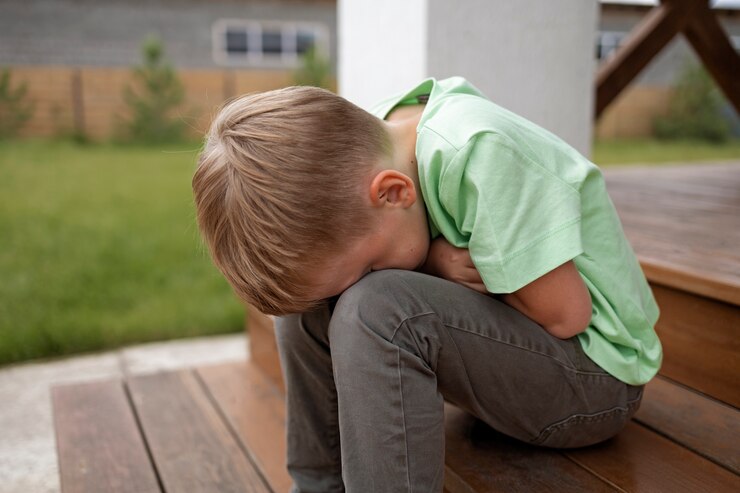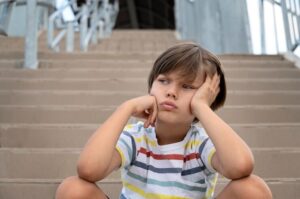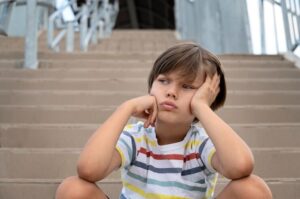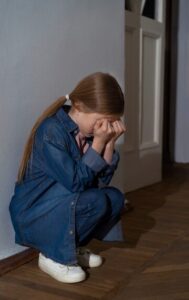What is childhood obsessive-compulsive disorder (OCD)?
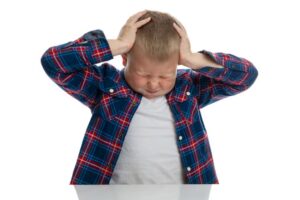 Explore Childhood Obsessive-Compulsive Disorder: Understand causes, symptoms, and effective treatment options for better management of OCD.
Explore Childhood Obsessive-Compulsive Disorder: Understand causes, symptoms, and effective treatment options for better management of OCD.
Childhood Obsessive-Compulsive Disorder (OCD) is a mental health condition characterized by intrusive, unwanted thoughts (obsessions) and repetitive behaviors or rituals (compulsions) that a child feels driven to perform. These obsessions and compulsions can significantly interfere with the child’s daily functioning, affecting their performance at school, relationships with family and peers, and overall quality of life. OCD often manifests during childhood or adolescence, although it can occur at any age.
Causes and risk factors of childhood OCD
The exact causes of childhood OCD are not fully understood, but research suggests a complex interplay of genetic, biological, and environmental factors. There is evidence to support a genetic predisposition, as OCD tends to run in families. Neurobiological abnormalities, particularly involving serotonin levels and dysfunction in specific brain circuits, are also implicated in the development of Childhood Obsessive-Compulsive Disorder. Environmental factors such as stress, trauma, or significant life changes may trigger or exacerbate symptoms in susceptible individuals.
Common symptoms of childhood OCD
Symptoms of childhood OCD typically fall into two categories: obsessions and compulsions. Common obsessions in children with OCD include fears of contamination (e.g., germs, dirt), a need for symmetry or order (e.g., arranging objects in a specific way), and excessive concerns about safety (e.g., fear of harm coming to oneself or loved ones). Compulsions often manifest as repetitive behaviors aimed at reducing anxiety or preventing a feared outcome, such as excessive hand washing, counting, checking, or seeking reassurance.
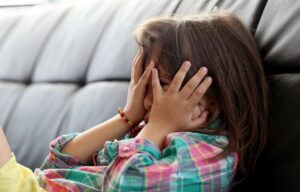 Diagnosis and assessment of childhood OCD
Diagnosis and assessment of childhood OCD
Diagnosing childhood OCD involves a comprehensive evaluation by a qualified mental health professional, such as a psychologist or psychiatrist. The assessment typically includes a detailed clinical interview with the child and their parents or caregivers, as well as standardized questionnaires to assess the severity of symptoms. The clinician will also consider the child’s developmental history, family dynamics, and any co-occurring mental health conditions that may influence the presentation of Childhood Obsessive-Compulsive Disorder.
Treatment options for childhood OCD
Effective treatment for childhood OCD often involves a combination of psychotherapy and medication. The primary goal of treatment is to reduce the severity of symptoms and improve the child’s functioning and quality of life.
 Cognitive-behavioral therapy for childhood OCD
Cognitive-behavioral therapy for childhood OCD
Cognitive-behavioral therapy (CBT) is the gold standard psychotherapeutic approach for childhood OCD. Specifically, exposure and response prevention (ERP) is a type of CBT commonly used to treat OCD. ERP involves gradually exposing the child to their fears or triggers while refraining from engaging in compulsive behaviors. Through repeated exposure, the child learns that their fears are unfounded, and their anxiety decreases over time. Additionally, CBT helps the child identify and challenge irrational thoughts, develop effective coping strategies, and build resilience (Childhood Obsessive-Compulsive Disorder).
Medications for childhood OCD
In cases where symptoms are severe or significantly impairing the child’s functioning, medication may be prescribed in conjunction with therapy. Selective serotonin reuptake inhibitors (SSRIs), such as fluoxetine (Prozac) or sertraline (Zoloft), are the first-line medications for childhood OCD. SSRIs help regulate serotonin levels in the brain, which can reduce the frequency and intensity of obsessions and compulsions. It’s essential for parents and healthcare providers to monitor the child closely for any side effects or changes in symptoms while on medication.
Support and resources for families of children with OCD
Living with a child with OCD can be challenging for families, but there are numerous support groups, educational resources, and advocacy organizations available to provide assistance and guidance. Connecting with other families facing similar challenges can offer emotional support, practical advice, and reassurance. Additionally, psychoeducation about OCD, its treatment, and strategies for supporting the child at home and school can empower parents and caregivers to better understand and manage the condition (Childhood Obsessive-Compulsive Disorder).
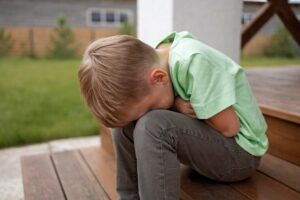 Coping strategies for children with OCD
Coping strategies for children with OCD
Teaching children with OCD effective coping strategies is essential for managing their symptoms and improving their overall well-being. Encouraging open communication about their feelings, providing reassurance without enabling compulsive behaviors, and promoting healthy lifestyle habits, such as regular exercise and adequate sleep, can help reduce anxiety and enhance resilience. Additionally, mindfulness techniques, relaxation exercises, and creative outlets can provide children with alternative ways to cope with stress and intrusive thoughts.
Conclusion and future outlook for childhood OCD treatment
Childhood Obsessive-Compulsive Disorder is a challenging condition that can significantly impact a child’s life, but with early recognition and appropriate intervention, it is highly treatable. Ongoing research into the underlying neurobiology of OCD and the development of innovative therapeutic approaches offer hope for continued advancements in treatment efficacy and accessibility. By raising awareness, reducing stigma, and promoting early intervention, we can improve outcomes for children with OCD and help them lead fulfilling, productive lives.
Learn more about Childhood Obsessive-Compulsive Disorder on our YouTube channel.
#obsessionsinchildrenwithocd #childhoodobsessivecompulsivedisorder #diagnosingchildhoodocd #obsessionsinchildrenwithocd

